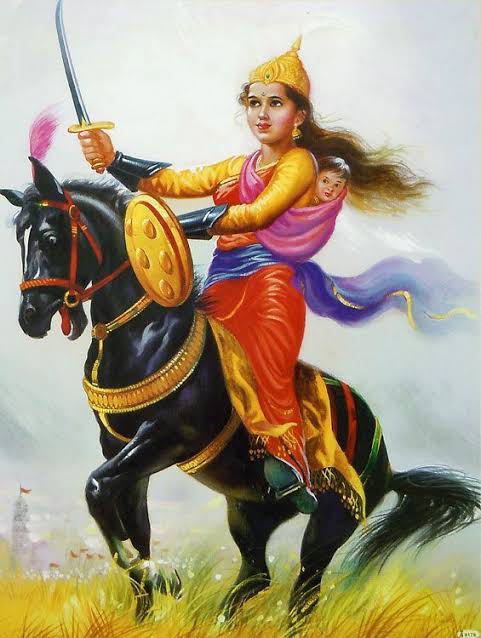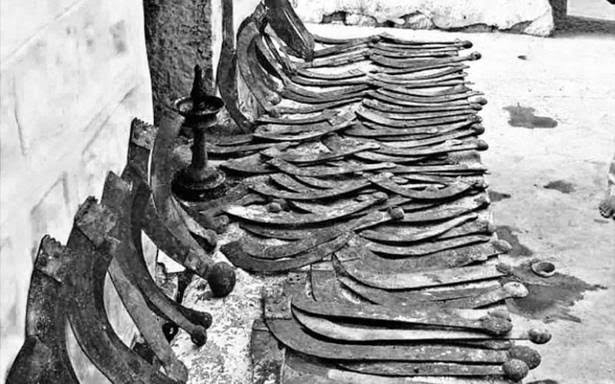Legends of India: Icons of Valor, Wisdom, and Leadership
India, a land of diverse cultures and rich history, has produced numerous legends whose contributions have left an indelible mark on the world. From ancient sages and kings to modern-day heroes, these figures have shaped India's identity through their remarkable deeds and enduring legacies. Here, we explore the lives and contributions of some of the most revered legends of India, including V.O. Chidambaram Pillai and Muthuramalinga Thevar.
Mohandas Karamchand Gandhi, universally known as Mahatma Gandhi, is celebrated as the Father of the Nation for his pivotal role in India's struggle for independence. Born on October 2, 1869, in Porbandar, Gujarat, Gandhi's philosophy of non-violence (Ahimsa) and civil disobedience became the cornerstone of the Indian freedom movement.
Gandhi's methods were revolutionary; he believed in achieving social and political goals through peaceful means. The Salt March of 1930 and the Quit India Movement of 1942 were significant milestones that demonstrated the power of non-violent resistance. His teachings not only inspired the Indian populace but also influenced global leaders like Martin Luther King Jr. and Nelson Mandela. Gandhi's vision for India was not just political freedom but also social equality, advocating for the upliftment of the untouchables, whom he referred to as Harijans (children of God).
Rani Lakshmibai, the Queen of Jhansi, is one of the most iconic figures in Indian history, symbolizing resistance against British colonial rule. Born as Manikarnika Tambe in Varanasi, she married Maharaja Gangadhar Rao of Jhansi. Following her husband's death and the subsequent annexation of Jhansi by the British under the Doctrine of Lapse, Lakshmibai became a key leader in the Indian Rebellion of 1857.
Her bravery and leadership during the siege of Jhansi are legendary. Dressed as a warrior, she fought valiantly against the British forces, leading her troops into battle with unmatched courage. Her death in combat at the age of 29 made her a martyr and a symbol of patriotism and valor. Rani Lakshmibai's legacy continues to inspire generations, and she remains a powerful emblem of women's empowerment and resistance.
Swami Vivekananda, born Narendranath Datta, was a towering spiritual leader and a key figure in the introduction of Indian philosophies of Vedanta and Yoga to the Western world. A disciple of the mystic Ramakrishna Paramahamsa, Vivekananda played a crucial role in the revival of Hinduism in India and its propagation abroad.
His speech at the Parliament of the World's Religions in Chicago in 1893 catapulted him to global fame. Beginning with the words "Sisters and brothers of America," Vivekananda's address emphasized the universal values of tolerance, acceptance, and the spiritual unity of all beings. He founded the Ramakrishna Mission, dedicated to social service and spiritual education. Vivekananda's teachings continue to inspire individuals seeking spiritual growth and societal change.
Rabindranath Tagore, the first non-European to win the Nobel Prize in Literature in 1913, was a polymath whose contributions spanned literature, music, art, and education. Born in Kolkata into a culturally influential family, Tagore's literary works, including poems, novels, and plays, are considered masterpieces of Indian and world literature.
His collection of poems, "Gitanjali" (Song Offerings), earned him international acclaim. Tagore's vision for education led to the founding of Visva-Bharati University in Santiniketan, a unique institution that blended the best of Eastern and Western philosophies. His compositions "Jana Gana Mana" and "Amar Sonar Bangla" became the national anthems of India and Bangladesh, respectively. Tagore's legacy is a testament to the power of cultural synthesis and artistic expression.
Vallinayagam Olaganathan Chidambaram Pillai, popularly known as V.O.C., was a prominent freedom fighter and a pioneering entrepreneur who played a significant role in India's struggle for independence. Born on September 5, 1872, in Ottapidaram, Tamil Nadu, V.O.C. was deeply influenced by the socio-political environment of his time.
V.O.C.'s most notable contribution was the establishment of the Swadeshi Steam Navigation Company in 1906, which was India's first indigenous shipping service. This venture was a direct challenge to British monopoly in maritime trade and a significant step towards economic independence. V.O.C.'s involvement in the freedom movement led to his imprisonment by the British, during which he endured severe hardships and was subjected to hard labor. Despite this, his spirit remained unbroken, and he continued to inspire others through his writings and speeches. V.O.C. is remembered as a symbol of resilience and self-reliance.
Pasumpon Muthuramalinga Thevar was a dynamic leader and freedom fighter from Tamil Nadu who played a significant role in both the Indian independence movement and the post-independence political landscape. Born on October 30, 1908, in Pasumpon, Thevar was a charismatic leader who was deeply committed to the upliftment of marginalized communities.
Thevar joined the Indian National Congress and later became a key supporter of Subhas Chandra Bose and his Forward Bloc. He was instrumental in organizing the Vedaranyam Salt Satyagraha in 1930, a protest against the British salt tax, which was part of the broader Civil Disobedience Movement. Thevar's efforts to mobilize the rural populace and his advocacy for agrarian reforms earned him widespread respect.
Post-independence, Thevar continued to champion the cause of social justice and worked towards dismantling the caste system and promoting equality. His legacy is commemorated annually through Thevar Jayanthi, a celebration that honors his contributions to India's socio-political fabric. Thevar's life exemplifies the power of grassroots leadership and dedication to social change.
Dr. Avul Pakir Jainulabdeen Abdul Kalam, known as the Missile Man of India, was a distinguished scientist and the 11th President of India. Born in Rameswaram, Tamil Nadu, Kalam's humble beginnings did not deter his ambitions. He played a pivotal role in India's space and missile programs, notably the development of the Agni and Prithvi missiles.
As the chief of the Defence Research and Development Organisation (DRDO) and later the Indian Space Research Organisation (ISRO), Kalam's contributions were crucial in advancing India's technological capabilities. His tenure as President from 2002 to 2007 was marked by efforts to inspire young minds and promote education and innovation. His book "Wings of Fire" is an autobiography that motivates millions. Known for his humility and dedication, Kalam's life continues to inspire India's youth.
Conclusion
The legends of India, through their extraordinary lives and contributions, have not only shaped the nation's history but also left a lasting impact on the world. Figures like V.O. Chidambaram Pillai and Muthuramalinga Thevar, alongside other great leaders, highlight the diverse and multifaceted struggle for India's independence and social reform. Their stories of courage, wisdom, and compassion continue to inspire and guide future generations. As we honor these icons, we also recognize the enduring values they stood for—freedom, equality, spirituality, and selfless service. Through their legacies, they remain eternal beacons of inspiration for humanity.









